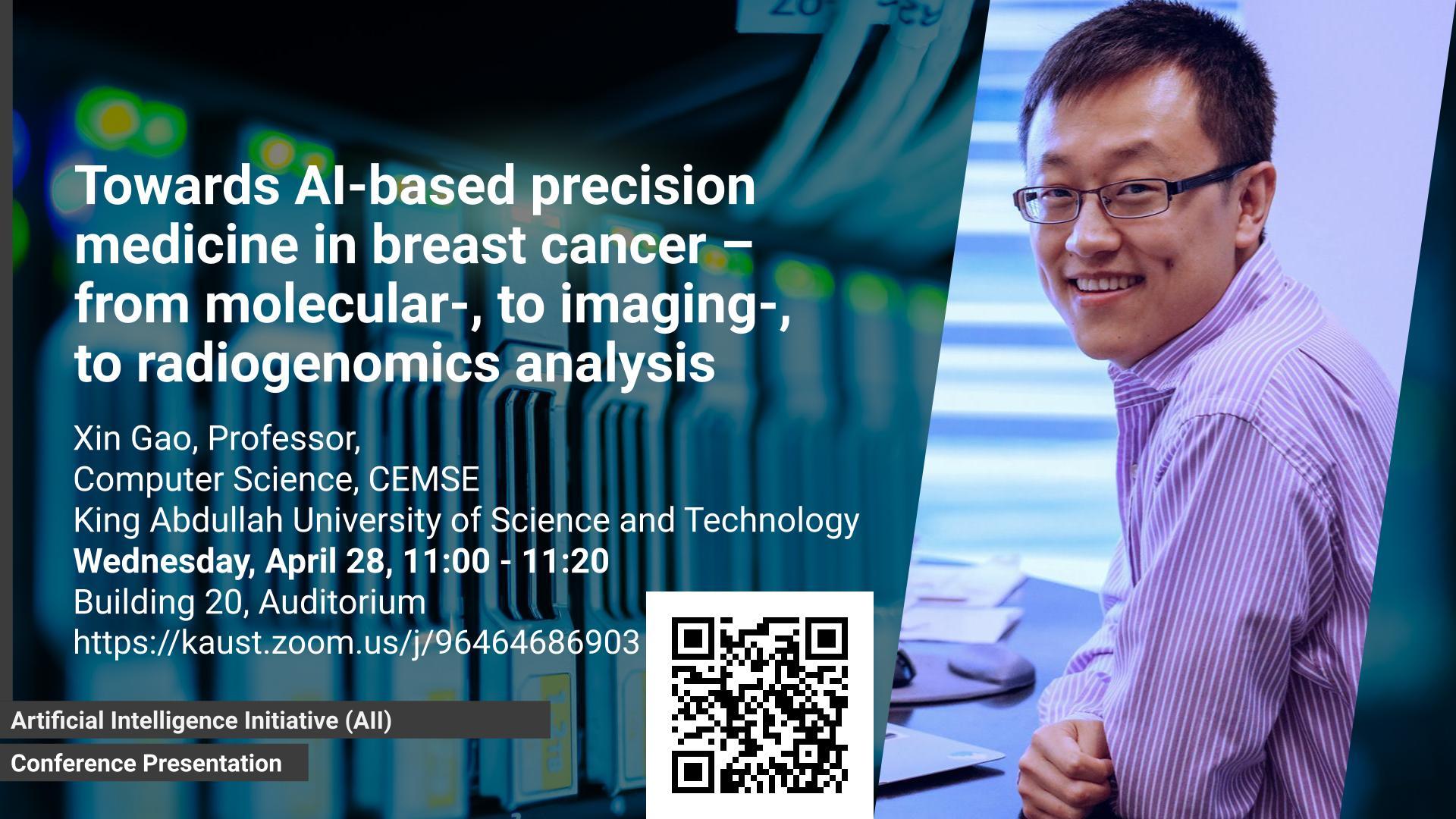Abstract
Breast cancer is the leading cause of cancer-related death in women worldwide. A promising strategy to improve breast cancer survival rates is precision medicine--a targeted approach to the diagnosis and treatment that are tailored for individual patients considering their genetic, environmental, and lifestyle backgrounds. In this talk I will introduce our series of work towards precision medicine in breast cancer. I will first describe, at a pan-cancer level, how we used as few as 58 genomic features to build accurate predictors to detect cancer patients from normal people, to classify the cancer types and subtypes, and to predict their survival time. I will then introduce our work on developing AI methods for analyzing, segmenting, quantifying, improving resolution, extracting features, and building predictive models for radiomic-based breast cancer analysis from biomedical imaging data, such as DCE-MRI. I will finally propose radiogenomics analysis methods to decipher the relationship between genomic and radiomic signatures, which will not only lead to better understanding of the heterogeneity of breast cancer, but also to better diagnosis, prognosis and treatment of breast cancer.
Brief Biography
Dr. Xin Gao is a professor of computer science in CEMSE Division at KAUST. He is also the Acting Associate Director of the Computational Bioscience Research Center (CBRC), Deputy Director of the Smart Health Initiative (SHI), and the Lead of the Structural and Functional Bioinformatics (SFB) Group at KAUST. Prior to joining KAUST, he was a Lane Fellow at Lane Center for Computational Biology in School of Computer Science at Carnegie Mellon University. He earned his bachelor degree in Computer Science in 2004 from Tsinghua University and his Ph.D. degree in Computer Science in 2009 from University of Waterloo.
Dr. Gao’s research interest lies at the intersection between computer science and biology. In the field of computer science, he is interested in developing machine learning theories and methodologies related to deep learning, probabilistic graphical models, kernel methods and matrix factorization. In the field of bioinformatics, his group works on building computational models, developing machine learning techniques, and designing efficient and effective algorithms to tackle key open problems along the path from biological sequence analysis, to 3D structure determination, to function annotation, to understanding and controlling molecular behaviors in complex biological networks, and, recently, to biomedicine and healthcare.
He has published more than 240 papers in the fields of bioinformatics and machine learning. He is the associate editor of Genomics, Proteomics & Bioinformatics, BMC Bioinformatics, Journal of Bioinformatics and Computational Biology, and Quantitative Biology, and the guest editor-in-chief of IEEE/ACM Transactions on Computational Biology and Bioinformatics, Methods, and Frontiers in Molecular Bioscience.

